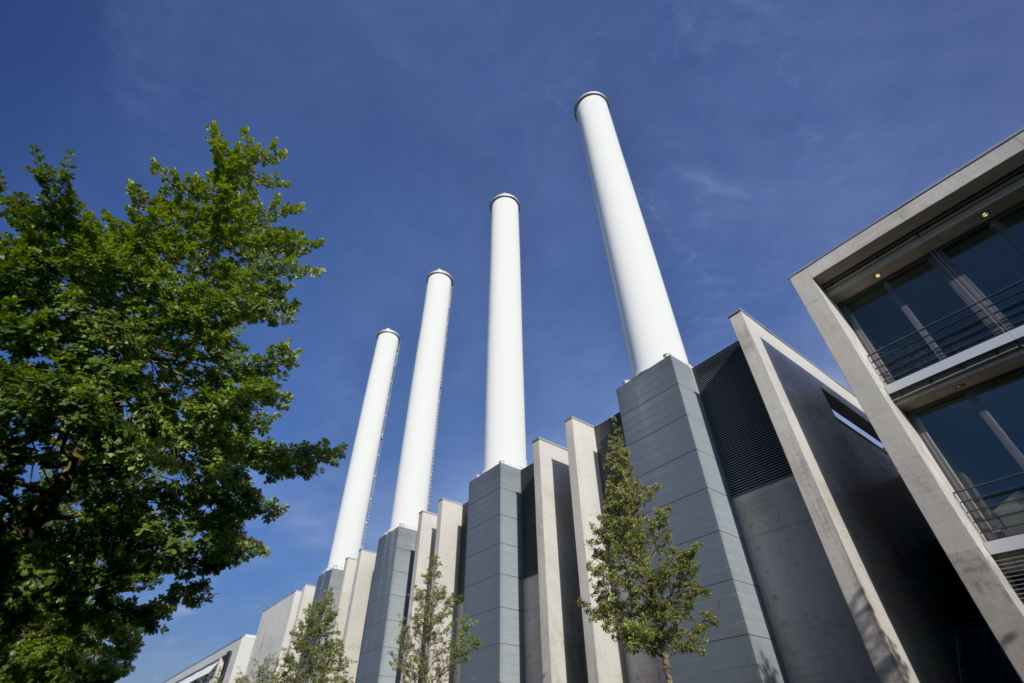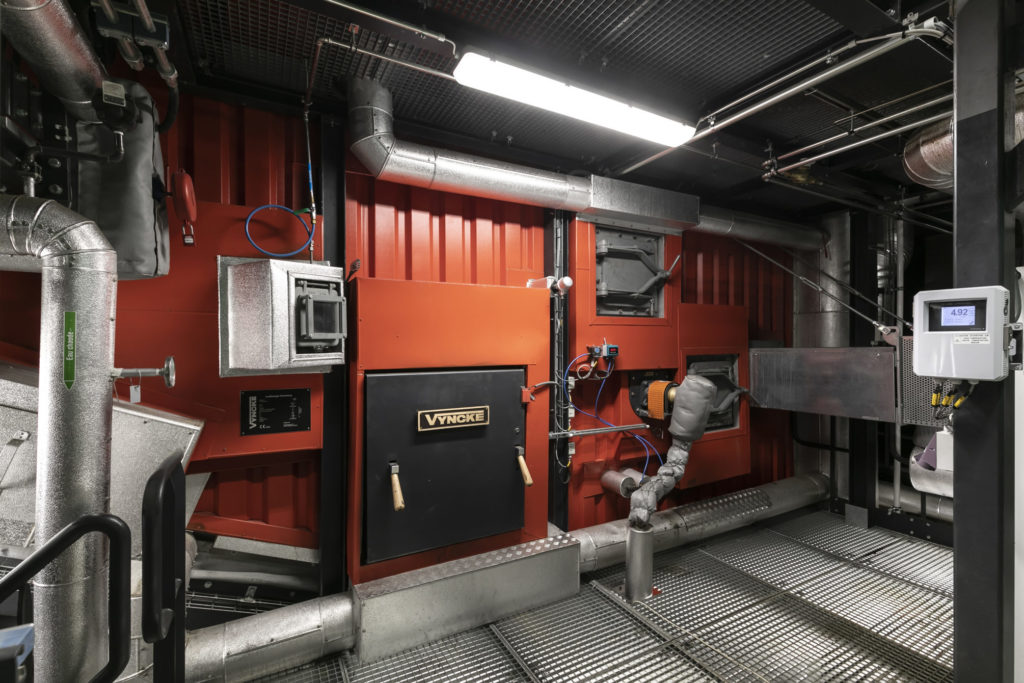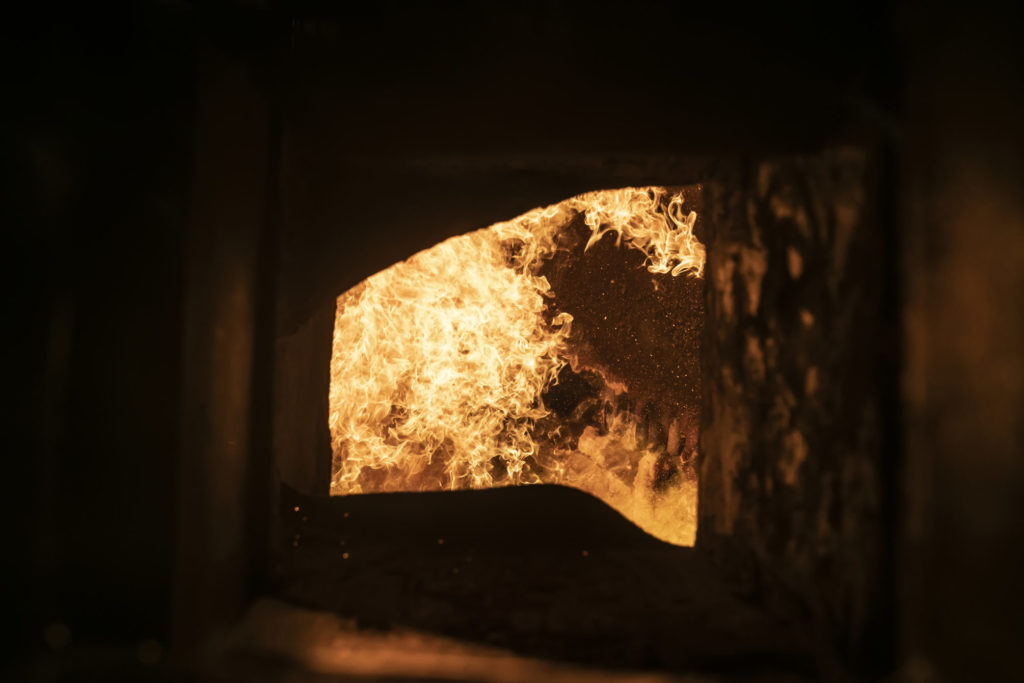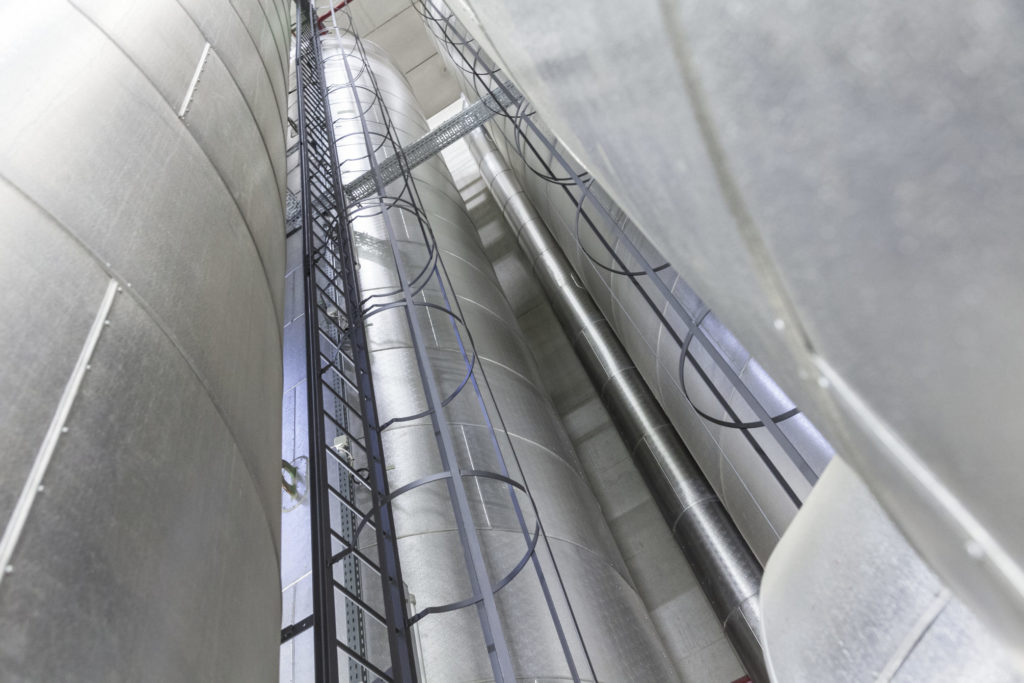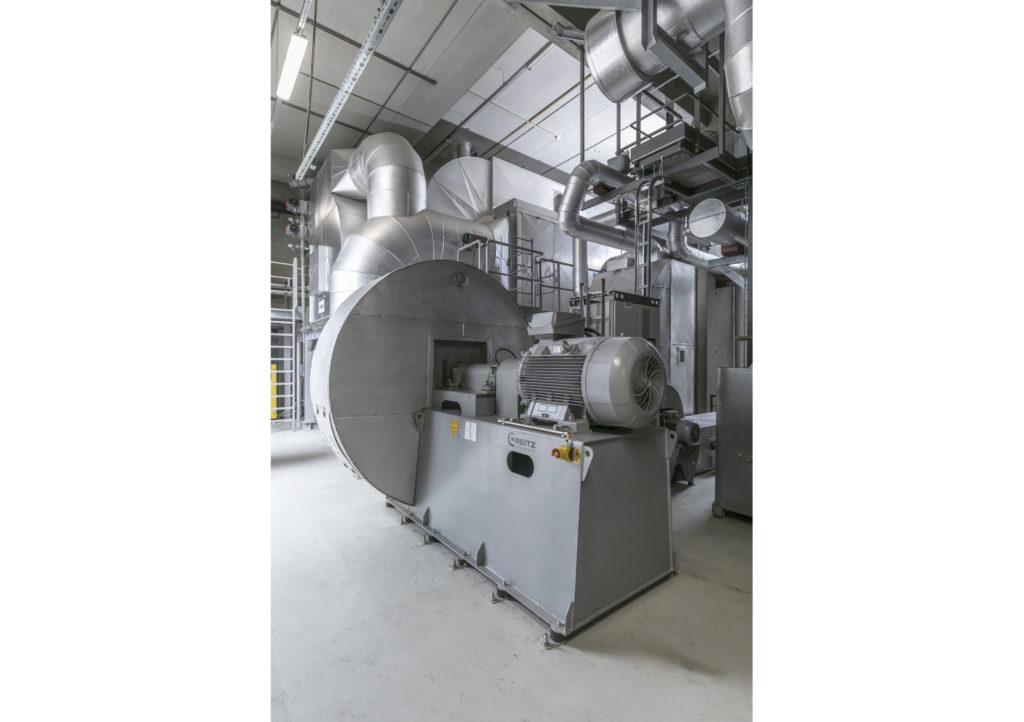Public sector and municipalities
Luxembourg-Kirchberg, Kirchberg energy plant
Luxembourg-KirchbergSince its commissioning in 2001, the energy plant has been supplying the heat network of the City of Luxembourg with heat from combined heat and power units (CHP) and condensing boilers that were operated with natural gas.
Due to the growth of Kirchberg and the resulting general increase in heat demand, LuxEnergie carried out the first ecological expansion of the energy plant in 2016. Since the completion of this expansion stage in 2017, Kirchberg’s base heat load has been covered by wood pellets, which are burnt in the biomass CHP plant. The City of Luxembourg’s heating network has thus enabled the conversion of an entire neighbourhood to green energy in one step and has become a “green” network.
During this expansion phase, peak demand was still covered by the natural gas-fuelled CHP units and the condensing boilers.
A second conversion of the energy plant took place in 2023 with the aim of also covering a large part of the peak load with renewable energy. The gas-fired CHP units have been dismantled and replaced by 2 pulverised wood boilers. Now, the 2 pulverised wood boilers are switched on first when demand peaks, enabling precise control in the same way as the gas boilers, and the gas boilers are only switched on at absolute peak loads.
Over 90% of Kirchberg’s heat supply is currently covered by renewable energies. In comparison to the initial situation, 37,000 tonnes of CO2 are saved annually.
Key figures
| Commissioning / conversion: | 2001 / 2017 / 2023 | |
|---|---|---|
| Heat production: | 2001-2017: | 127.500 MWh/a (fossil) |
| after 2017: | 80.000 MWh/a (regenerative) | |
| 58.900 MWh/a (fossil) | ||
| after 2023: | 137.200 MWh/a (regenerative) | |
| 7.300 MWh/a (fossil) | ||
| Power production: | 2001-2017: | 59.900 MWh/a (fossil) |
| after 2017: | 22.000 MWh/a (regenerative) | |
| 28.700 MWh/a (fossil) | ||
| after 2023: | 22.000 MWh/a (regenerative) | |
| 28.700 MWh/a (fossil) | ||
| Heat network: | 17,5 km | |
| Use: | District heating / electricity |
Energy plant
Before conversion
6 CHP modules
Primary energy: natural gas
3 boilers with dual fuel burners
Primary energy: natural gas and heating oil
After conversion 1 (2017)
1 biomass cogeneration module
Primary energy: wood pellets
5 CHP modules
Primary energy: natural gas
3 boilers with dual fuel burners
Primary energy: natural gas and heating oil
After conversion 2 (2023)
1 biomass cogeneration module
Primary energy: wood pellets
2 boilers with wood dust burners
Primary energy: wood pellets
3 boilers with dual fuel burners
Primary energy: natural gas and heating oil

